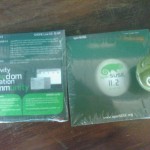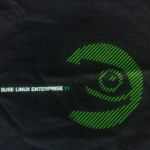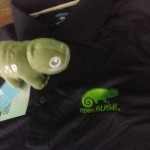 I am very happy to announce the new stable version 0.40 of the KDE office software Kraft. After eleven month of porting work, Kraft 0.40 is the first version which is based on the KDE 4 software platform. Huge changes on the codebase of Kraft happened to benefit from the new technology of KDE 4 and after long long hours of work, we’re there 🙂
I am very happy to announce the new stable version 0.40 of the KDE office software Kraft. After eleven month of porting work, Kraft 0.40 is the first version which is based on the KDE 4 software platform. Huge changes on the codebase of Kraft happened to benefit from the new technology of KDE 4 and after long long hours of work, we’re there 🙂
Basically the new version equals the last KDE 3 version feature wise beside some changes which aim to make Kraft even more convenient to explore for unexperienced users. We got much feedback that the setup with MySQL was to complicated for people who just want to do a quick test. So we had to do something about that. The alternative was the clever run-mysql-as-the-user method just like Akonadi does it, but still the dependency on MySQL remains with that solution. So I went for SQLite, because its seemed so easy. Well, SQLite did not convince me completely yet, but it is working for Kraft.
There is also a new setup assistant which starts automatically on first start of Kraft. It takes the database details and creates and populates the database layer automatically. It also lets the user pick his own address from the list of ddresses of the Akonadi based kaddressbook. Well, the new Akonadi based Addressbook was challenging me a bit. Some functionality which the old addressbook API offered is not yet implemented in the new one, so I had to go some extra rounds to for example get query on address UID done. I still have proper feedback for the PIM Group on my todo…
We also are happy to annouce a new project homepage available under http://www.volle-kraft-voraus.de. It is a new technology base to provide better documentation over the long term.
I am very happy to be part of the KDE family. It is great how KDE proves again and again that it makes application development so easy and fun. I am really wondering myself what I did the last eleven month 😉 Frankly I am happy to have porting finished now. I am now looking forward to our KDE Finance Group Sprint next week in Frankfurt. I guess after that I will have tons of ideas and motivations to move on feature wise.







